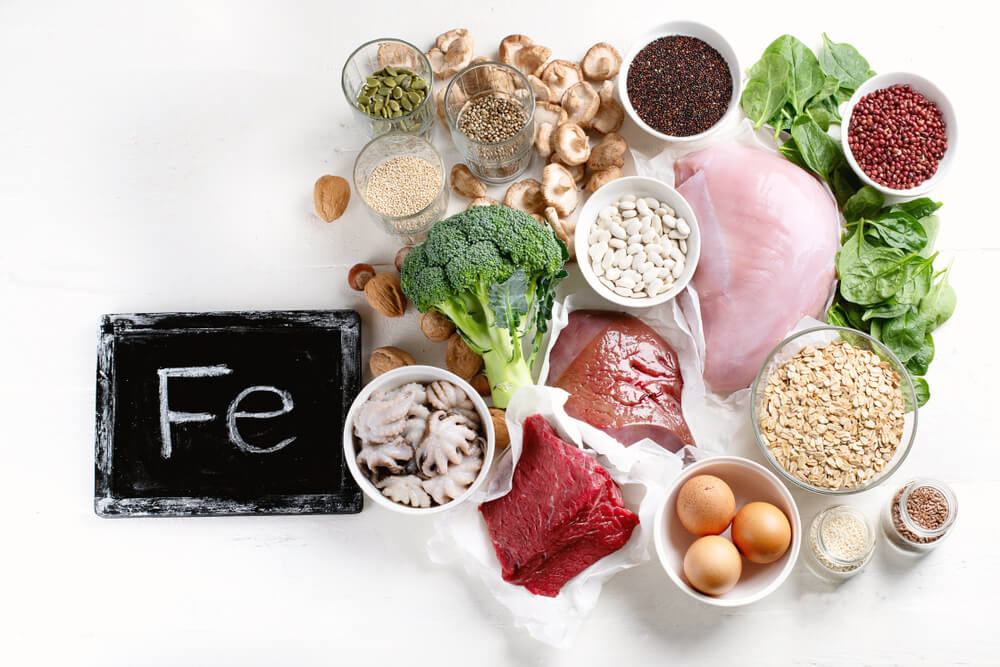For many women, heavy menstrual periods, medically known as menorrhagia, can be a significant concern. Not only does it disrupt daily life, but it can also lead to anemia and severe fatigue. While various medical treatments exist, many women lean towards natural remedies to manage this condition. At ACE OBGYN, we believe in providing comprehensive care, and this includes sharing knowledge about holistic approaches. This article delves into the natural treatment options available for menorrhagia.
Understanding Menorrhagia
Before diving into the remedies, it’s crucial to understand menorrhagia. Heavy periods can be due to various reasons, including hormonal imbalances, uterine fibroids, and certain medical conditions. Recognizing the root cause is essential to decide on the best treatment path, whether medical or natural.
Dietary Adjustments: Nature’s First Defense

One of the first natural remedies for heavy periods is dietary modification. Iron-rich foods can combat the risk of anemia. Including foods like spinach, lentils, and lean meats can be beneficial. Moreover, certain foods, like flaxseeds and soy products, have properties that can balance hormones.
Supplements for Heavy Periods
- Iron: Since heavy periods can lead to anemia, iron supplements can be essential. They replenish the lost iron and prevent fatigue.
- Vitamin C: Enhances the body’s iron absorption and supports the blood vessels in the uterus.
- Evening Primrose Oil: Contains essential fatty acids that can help with hormone regulation, potentially easing heavy flows.
Herbal Solutions: Nature’s Pharmacy
Many cultures have relied on herbs as a menorrhagia natural treatment:
- Raspberry Leaf: Known for toning the uterus and regulating flow.
- Nettle: High in iron and can help replenish the body’s iron stores.
- Yarrow: Has properties that can reduce heavy bleeding.
Lifestyle Modifications for Menorrhagia
Several lifestyle adjustments can work as a natural treatment for heavy periods:
- Stress Management: Stress can influence hormonal balance. Practices like yoga, meditation, and deep-breathing exercises can be beneficial.
- Maintaining a Healthy Weight: Being either underweight or overweight can influence menstrual flow. Striking a balance is key.
- Regular Exercise: While it may seem counterintuitive, moderate exercise can help in regulating menstrual cycles.
Acupuncture and Traditional Chinese Medicine (TCM)
Acupuncture, a component of TCM, has been used for centuries to treat various ailments, including menorrhagia. By targeting specific energy points in the body, acupuncture aims to restore balance and promote healing. Some women have found relief from heavy periods after undergoing acupuncture sessions.
Bioflavonoids and Natural Coagulants
Bioflavonoids, commonly found in citrus fruits, have been studied for their potential role in strengthening blood vessels. This can be helpful in reducing heavy menstrual bleeding. Moreover, certain natural coagulants, like apple cider vinegar, have anecdotal evidence suggesting their efficacy in managing menorrhagia.
The Role of Hormonal Balance
Hormonal balance plays a pivotal role in menstrual health. Hormones like estrogen and progesterone regulate the menstrual cycle, and any imbalance can lead to issues like menorrhagia. While several factors can disrupt hormonal equilibrium, certain natural treatments aim to restore it. For instance, adaptogenic herbs like ashwagandha, maca, and chasteberry have been traditionally used to support hormonal health. Incorporating these herbs under professional guidance might offer relief to some.
The Power of Hydration

While it might seem simple, staying hydrated is crucial, especially during heavy periods. Loss of fluids can lead to symptoms like dizziness and increased fatigue. Drinking ample water not only compensates for the lost fluid but also helps in flushing out excess hormones and other waste products from the body. Herbal teas, especially those with herbs beneficial for menstrual health, can also be an excellent addition. Chamomile tea, for example, has antispasmodic properties that can soothe menstrual cramps.
Holistic Therapies and Menorrhagia
The interconnectedness of the body and mind is undeniable. Therapies like aromatherapy have been used for centuries to address various ailments, including menstrual issues. Essential oils like clary sage and lavender have properties that can soothe menstrual cramps and help regulate menstrual flow. Another holistic approach is reflexology, a therapy where pressure is applied to specific points on the feet. Some women with menorrhagia have reported relief following reflexology sessions. These therapies, while not replacements for medical treatments, can complement them and offer holistic healing.
Dietary Fibers and Menstrual Health
The importance of dietary fiber in overall health is well-established, but its potential role in managing menorrhagia deserves attention. A high-fiber diet can aid in the proper elimination of waste and excess hormones from the body. By ensuring a healthy digestive system, dietary fibers can help in balancing estrogen levels, a hormone often linked to heavy menstrual bleeding. Incorporating foods like whole grains, legumes, fruits, and vegetables can contribute to a fiber-rich diet that supports menstrual health.
The Role of Essential Fatty Acids
Omega-3 and Omega-6 fatty acids, often touted for their cardiovascular benefits, can also play a role in managing menstrual health. These essential fatty acids, especially Omega-3 found in flaxseeds, walnuts, and fatty fish like salmon, have anti-inflammatory properties. Chronic inflammation is believed to play a role in various menstrual disorders, including menorrhagia. By incorporating these fatty acids into the diet, one might reduce inflammation, thereby potentially alleviating some of the symptoms associated with heavy periods.
Magnesium and Its Relevance to Menstrual Health
Magnesium, a vital mineral for numerous bodily functions, has been increasingly recognized for its potential benefits in menstrual health. Some studies suggest that a deficiency in magnesium can exacerbate menstrual cramps and lead to heavier menstrual bleeding. This essential mineral helps in muscle relaxation, potentially alleviating menstrual cramps. It also plays a role in hormone regulation, ensuring that estrogen and progesterone levels remain balanced. Foods rich in magnesium include leafy greens, nuts, seeds, and whole grains. For those considering magnesium supplements to address menstrual issues, it’s crucial to consult with a healthcare professional to determine appropriate dosages and avoid potential interactions with other medications or conditions.
The Emotional Aspect of Menorrhagia
While the physical implications of heavy periods are evident, it’s essential to acknowledge the emotional toll it can take. Dealing with menorrhagia can be isolating, leading to feelings of embarrassment or frustration. It’s crucial to foster a supportive environment where open conversations about menstrual health can take place. Joining support groups or communities, both online and offline, where experiences are shared can offer comfort and guidance.
Consulting a Professional
While there are numerous natural treatment options for menorrhagia, it’s essential to consult with a healthcare professional before making significant changes. This is especially true for supplements for heavy periods, as overdosing can have adverse effects. The underlying cause of heavy periods can differ from one individual to another, and a personalized approach often yields the best results.
Conclusion
Menorrhagia can be daunting, but with a combination of medical and natural treatments, many women find relief. The plethora of natural remedies for heavy periods offers options that can be integrated into daily life, promoting overall well-being. Whether you’re exploring dietary changes, supplements for heavy periods, or traditional remedies, it’s about finding what works best for you. Remember always to seek guidance and ensure that your approach aligns with your overall health goals. The journey with menorrhagia is personal, and with the right information and support, every woman can find her path to relief.

